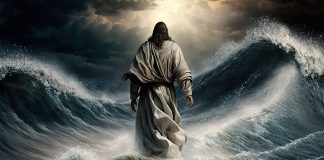On the side of God and logic
Benjamin Solomon Carson is the famous American neurosurgeon who was the first to successfully separate conjoined twins in 1987.
How can I discover God’s will for my life?
Whoever enters into a friendly dialogue with the will of God will never be the same person as before this dialogue. However, whatever one believes about God's will depends on their view of God's character and, therefore, on God's purpose for them.
God’s children… and “grandchildren”
I once heard a Christian warn his community: "God only has children, He does not have grandchildren!" In the postmodern context of relativising values and truths, diverse, strange or syncretic religious forms have emerged and continue to emerge. This is happening to a large extent within Christianity.
Conspiracy: from Lord of the Rings to the era of fake news
Towards the end of the Lord of the Rings trilogy, there is a final showdown between Frodo and Smeagol. Smeagol tries to regain possession of "My Precious", and when Frodo resists, Smeagol tries to strangle him. One scene in this part shows Frodo shocked that Smeagol has broken his promise and, though on the brink of death, sees fit to plead for honour:...
Our inevitable failures
Economic capitalism has a psychological twin, one that is not as bold and brash as its profit-obsessed counterpart, but if we look into the subtle details of our interior universe we find it hidden there.
Foreshadows that illuminate | How Christ was known before the incarnation
The Passion and Resurrection of Jesus Christ—or the Christian Easter—stand out distinctly in the crowded landscape of global religious beliefs and ideas. No other religious tradition contains the concept of a divine person offering Himself as the unique and sufficient mediator through whom God draws near to humanity, and humanity draws near to God.
“You can beat this!” | Milestones on the road from fear to success
He was born in 1935 in Narvik, Norway, beyond the Arctic Circle, at a time when the clouds of war were gathering. In 1940, in the space of a few months, Narvik was controlled by Germany, conquered by the Allies, and then left to the Germans.
Through the storm with God by your side
"Even to your old age and gray hairs I am He, I am He who will sustain you. I have made you and I will carry you; I will sustain you and I will rescue you" (Isaiah 46:4).
Does God listen to my prayers?
If there is a crossroads where both the path of faith and the path of doubt or unbelief begin, it is prayer.
Heaven won’t be boring. Here’s why.
Forget floating on clouds—discover the thrilling, purposeful eternity God has planned for you.
The question that rattles even the faith of clergymen
"Where is God?" is the question that arises in the face of inexplicable tragedy. When even a high-ranking clergyman is plagued by this question, the natural response is to conclude that something does not add up.
Do we worship war?
Edinburgh Castle sits proudly on the hill overlooking the city. Buildings and tourist shops crowd its feet, right up to the gate, where the square is being prepared for the famous Royal Edinburgh Military Tattoo.
Twenty years ago, on salvation
When I was 20, my spiritual life felt like an exam where I had been given a topic I hadn’t prepared for.
From the religion of lack to the lack of religion
A group of atheists in Sacramento, California, have prepared 55 billboards for the Christmas season, featuring images of local people and slogans such as "Good without God", "Doing good is my religion" or "Believe in yourself".
Case closed…32 years later
"Even if you're imprisoned for life, that's still a short time. After that, Jesus will come back. All you have to do is try to make the best of the situation you're in' (Lindy Chamberlain).


























